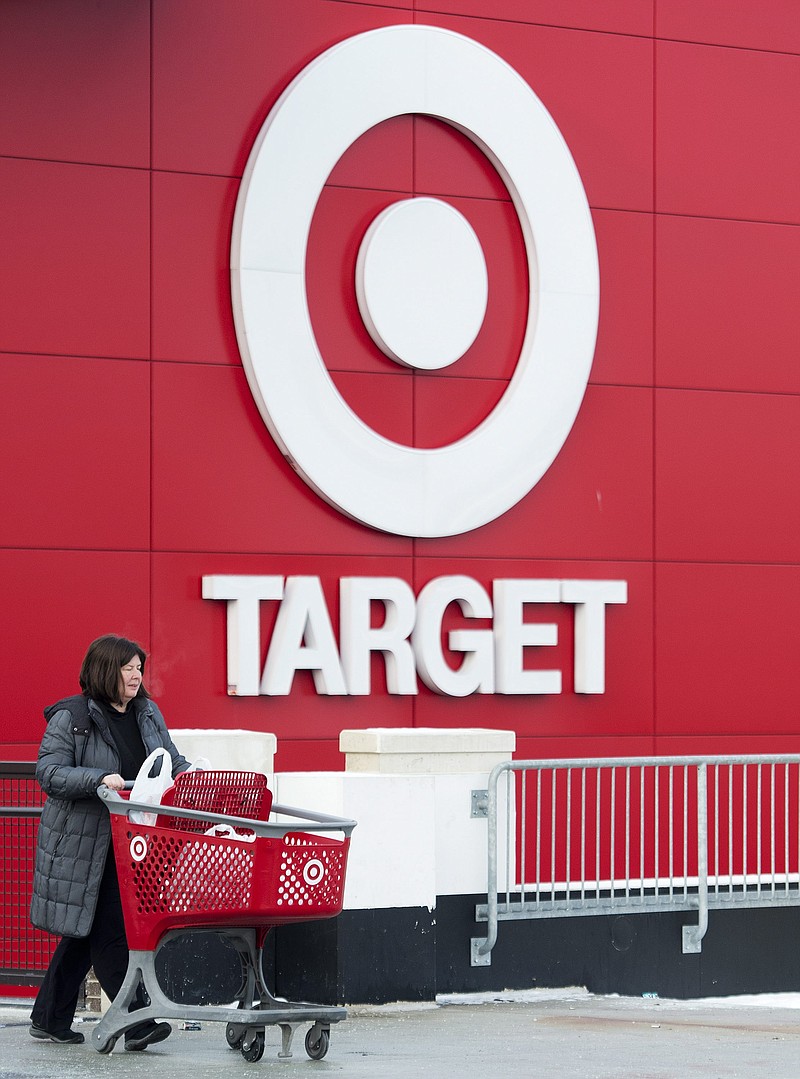Target stores will remove bottles of gingko biloba, St. John's wort and valerian root labeled under their in-house brand, Up & Up, and the Spring Valley brand from their store shelves nationwide, a spokesman told the Times Free Press.
The decision was made after results of an investigation of herbal supplements by the New York Attorney General found that Spring Valley, Up & Up, GNC's Herbal Plus and Finest Nutrition did not contain the herbs advertised on their labels.
In an announcement last week, New York Attorney General Eric Schneiderman said that 79 percent of the supplements tested contained little or none of the herb the labels claimed was inside the pills or capsules. Some supplements contained nothing more than crushed house plants, ground rice or garden weeds. Schneiderman ordered the supplements removed from the shelves of all New York stores.
But Target decided to go a step further, Target spokesperson Evan Lapiska said Wednesday.
"We are partnering with our vendor to investigate the matters raised by the report and intend to cooperate fully with the Attorney General," Lapiska said. "While that investigation proceeds, Target will comply with the New York Attorney General's request to pull these products, and have done so in all of our stores nationwide and on Target.com."
"The voluntary pull only impacts the Gingko Biloba, St. John's Wort, and Valerian Root that were called out by the Attorney General," he added.
New York Investigation Findings
GNC: Six "Herbal Plus" brand herbal supplements per store were purchased and analyzed: Ginkgo Biloba, St. John's Wort, Ginseng, Garlic, Echinacea, and Saw Palmetto. Purchased from four locations with representative stores in Binghamton, Harlem, Plattsburgh & Suffolk. Only one supplement consistently tested for its labeled contents: Garlic. One bottle of Saw Palmetto tested positive for containing DNA from the saw palmetto plant, while three others did not. The remaining four supplement types yielded mixed results, but none revealed DNA from the labeled herb. Of 120 DNA tests run on 24 bottles of the herbal products purchased, DNA matched label identification 22% of the time. Contaminants identified included asparagus, rice, primrose, alfalfa/clover, spruce, ranuncula, houseplant, allium, legume, saw palmetto, and Echinacea. Target: Six "Up & Up" brand herbal supplements per store were purchased and analyzed: Ginkgo Biloba, St. John's Wort, Valerian Root, Garlic, Echinacea, and Saw Palmetto. Purchased from three locations with representative stores in Nassau County, Poughkeepsie, and Syracuse. Three supplements showed nearly consistent presence of the labeled contents: Echinacea (with one sample identifying rice), Garlic, and Saw Palmetto. The remaining three supplements did not revealed DNA from the labeled herb. Of 90 DNA tests run on 18 bottles of the herbal products purchased, DNA matched label identification 41% of the time. Contaminants identified included allium, French bean, asparagus, pea, wild carrot and saw palmetto. Walgreens: Six "Finest Nutrition" brand herbal supplements per store were purchased and analyzed: Ginkgo Biloba, St. John's Wort, Ginseng, Garlic, Echinacea, and Saw Palmetto. Purchased from three locations with representative stores in Brooklyn, Rochester and Watertown. Only one supplement consistently tested for its labeled contents: Saw Palmetto. The remaining five supplements yielded mixed results, with one sample of garlic showing appropriate DNA. The other bottles yielded no DNA from the labeled herb. Of the 90 DNA test run on 18 bottles of herbal products purchased, DNA matched label representation 18% of the time. Contaminants identified included allium, rice, wheat, palm, daisy, and dracaena (houseplant). Walmart: Six "Spring Valley" brand herbal supplements per store were purchased and analyzed: Ginkgo Biloba, St. John's Wort, Ginseng, Garlic, Echinacea, and Saw Palmetto. Purchased from three geographic locations with representative stores in Buffalo, Utica and Westchester. None of the supplements tested consistently revealed DNA from the labeled herb. One bottle of garlic had a minimal showing of garlic DNA, as did one bottle of Saw Palmetto. All remaining bottles failed to produce DNA verifying the labeled herb. Of the 90 DNA test run on 18 bottles of herbal products purchased, DNA matched label representation 4% of the time. Contaminants identified included allium, pine, wheat/grass, rice mustard, citrus, dracaena (houseplant), and cassava (tropical tree root).
